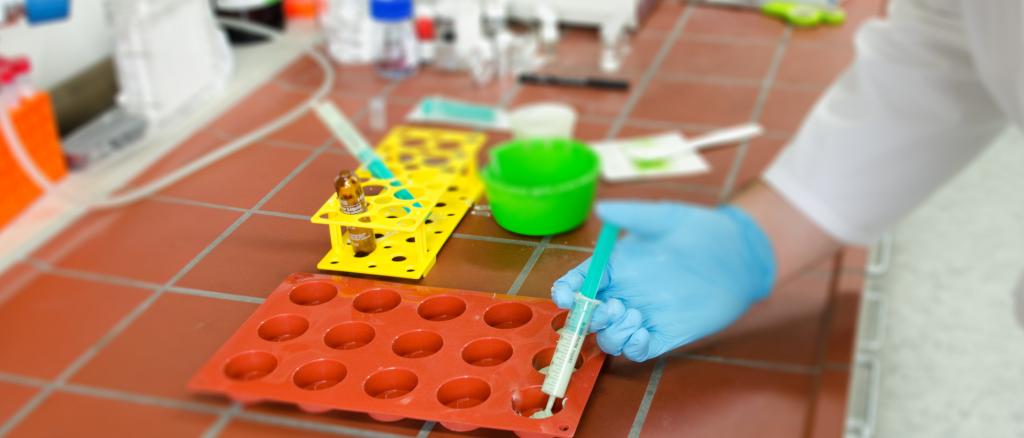
The Laser Zentrum Hannover e.V. (LZH) is developing an endoscope-based laser system with which doctors should be able to remove the old cement more gently and with an improved vision.
Hip prostheses indeed have a long retention time in the body, averaging 10 to 15 years. However, worldwide about one million prostheses are fitted each year, so the so-called revision, the fitting of a new prosthesis, is relatively common. To ensure that they hold well, they are often fixed in the thigh bone with bone cement. The old bone cement has to be removed completely when replacing the prosthesis. Up to now, surgeons need to remove it with great effort mechanically or via ultrasound. Both procedures are very time-consuming.
Endoscope-based laser system – simplifying surgery
The scientists at the LZH want to develop a rigid endoscope through which a laser beam and a camera are guided. The surgeon shall segment the old cement with the laser to facilitate the removal. The video image of the camera allows the surgeon a direct view of the process inside the bone. An integrated selective illumination is supposed to enhance the contrast between cement and bone. This would make it easier for the surgeon to navigate wthin the bone and differentiate between bone and bone cement.
The Biophotonics Group of the LZH will develop the spectroscopic analysis of aged bone cement, the laser ablation process, and a clinical demonstrator. The long-term goal is to reduce the duration of the surgery and make the procedure safer and less invasive for patients.
About LaZE
The project LaZE (Laser Cement Removal) – "Development of an endoscopic system for chromatically contrasted imaging and laser-based removal of bone cement in revision endoprosthetics" is funded by the Else Kröner-Fresenius-Foundation (EKFS). For the technical realization and clinical translation, the LZH will work closely with the Helios ENDO-Klinik Hamburg to integrate clinical feedback directly into the development.
Laser Zentrum Hannover e.V. (LZH)
As an independent, non-profit research institute, the Laser Zentrum Hannover e.V. (LZH) stands for innovative research, development and consulting. The LZH is supported by the Niedersachsen Ministry of Economic Affairs, Employment, Transport and Digitalisation and is dedicated to the selfless promotion of applied research in the field of photonics and laser technology. Founded in 1986, over 170 employees are now working for the LZH.
The focus of the LZH lies on the fields of optical components and systems, optical production technologies, and biomedical photonics. Interdisciplinary cooperation between natural scientists and mechanical engineers makes innovative approaches to challenges from the most different areas possible: from the development of components for specific laser systems to process developments for the most diverse laser applications, for example for medical technology or lightweight construction in the automotive sector. Eighteen spin off companies have emerged from the LZH up to now. Thus, the LZH has created a strong transfer between fundamental science, application oriented research, and industry.
Contact
Lena Bennefeld
Head of Communication Dept.
+49 511 2788-238
presse@lzh.de
You can find this press release on Laser Zentrum Hannover e.V. (LZH).